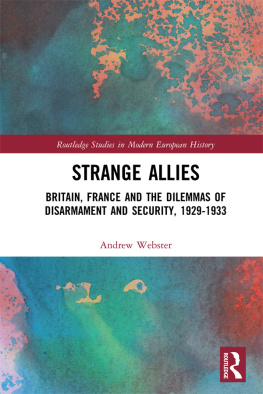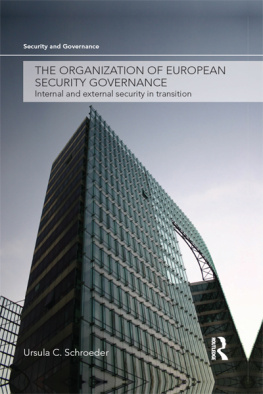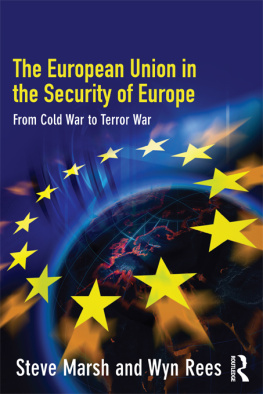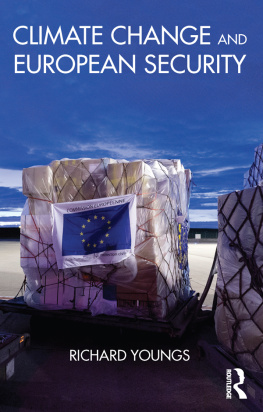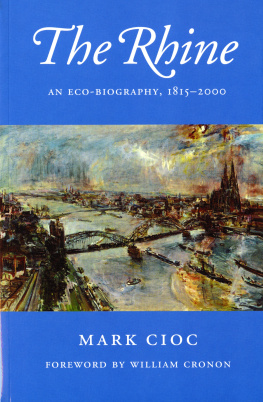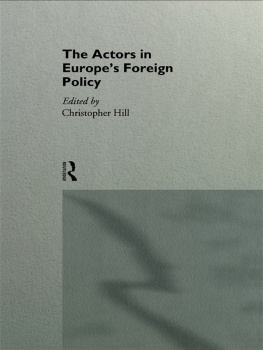
The Rhine and European Security in the Long Nineteenth Century
Throughout history rivers have always been a source of life and of conflict. This book investigates the Central Commission for the Navigation of the Rhines (CCNR) efforts to secure the principle of freedom of navigation on Europes prime river.
The book explores how the most fundamental change in the history of international river governance arose from European security concerns. It examines how the CCNR functioned as an ongoing experiment in reconciling national and common interests that contributed to the emergence of European prosperity in the course of the long nineteenth century. In so doing, it shows that modern conceptions and practices of security cannot be understood without accounting for prosperity considerations and prosperity policies. Incorporating research from archives in Great Britain, Germany, and the Netherlands, as well as the recently opened CCNR archives in France, this study operationalises a truly transnational perspective that effectively opens the black box of the oldest and still existing international organisation in the world in its first centenary.
In showing how security-prosperity considerations were a driving force in the unfolding of Europes prime river in the nineteenth century, it is of interest to scholars of politics and history, including the history of international relations, European history, transnational history and the history of security, as well as those with an interest in current themes and debates about transboundary water governance.
Joep Schenk is lecturer at the History of International Relations section at Utrecht University, Netherlands. He worked as a post-doctoral fellow within an ERC-funded project on the making of a security culture in Europe in the nineteenth century and is currently researching international environmental cooperation and competition in historical perspective.
Routledge Studies in Modern European History
76 Europe between Migrations, Decolonization and Integration (19451992)
Edited by Giuliana Laschi, Valeria Deplano, Alessandro Pes
77 Steamship Nationalism
Ocean Liners and National Identity in Imperial Germany and the Atlantic World
Mark Russell
78 Transatlantic Anarchism during the Spanish Civil War and Revolution, 19361939
Morris Brodie
79 Emotions and Everyday Nationalism in Modern European History
Edited by Andreas Stynen, Maarten Van Ginderachter and Xos M. Nez Seixas
80 Black Abolitionists in Ireland
Christine Kinealy
81 Sinti and Roma in Germany (1871-1933)
Gypsy Policy in the Second Empire and Weimar Republic
Simon Constantine
82 German Neo-Pietism, the Nation and the Jews
Religious Awakening and National Identities Formation, 18151861
Doron Avraham
83 Child Migration and Biopolitics
Old and New Experiences in Europe
Edited by Beatrice Scutaru and Simone Paoli
83 The Rhine and European Security in the Long Nineteenth Century
Making Lifelines from Frontlines
Joep Schenk
84 Garibaldis Radical Legacy
Traditions of War Volunteering in Southern Europe (18611945)
Enrico Acciai
For more information about this series, please visit: https://www.routledge.com/history/series/SE0246
First published 2021
by Routledge
2 Park Square, Milton Park, Abingdon, Oxon OX14 4RN
and by Routledge
52 Vanderbilt Avenue, New York, NY 10017
Routledge is an imprint of the Taylor & Francis Group, an informa business
2021 Joep Schenk
The right of Joep Schenk to be identified as author of this work has been asserted by him in accordance with sections 77 and 78 of the Copyright, Designs and Patents Act 1988.
The Open Access version of this book, available at www.taylorfrancis.com, has been made available under a Creative Commons Attribution-Non Commercial-No Derivatives 4.0 license
Trademark notice: Product or corporate names may be trademarks or registered trademarks, and are used only for identification and explanation without intent to infringe.
British Library Cataloguing in Publication Data
A catalogue record for this book is available from the British Library
Library of Congress Cataloging-in-Publication Data
Names: Schenk, Joep, author.
Title: The Rhine and European security in the long nineteenth century : making lifelines from frontlines / Joep Schenk.
Description: 1 Edition. | New York : Routledge, 2020. | Series: Routledge studies in modern European history | Includes bibliographical references and index.
Identifiers: LCCN 2020031722 (print) | LCCN 2020031723 (ebook) | ISBN 9780367345761 (hardback) | ISBN 9780429326660 (ebook)
Subjects: LCSH: Inland water transportation--Rhine River--History. | Inland water transportation--Europe--History. | Shipping--Rhine River--History. | Europe--Foreign relations. | Central Commission for the Navigation of the Rhine--History.
Classification: LCC HE662 .S24 2020 (print) | LCC HE662 (ebook) | DDC 341.4/4209409034--dc23
LC record available at https://lccn.loc.gov/2020031722
LC ebook record available at https://lccn.loc.gov/2020031723
ISBN: 978-0-367-34576-1 (hbk)
ISBN: 978-0-429-32666-0 (ebk)
Typeset in Times New Roman
by Taylor & Francis Books
Contents
For this work, I owe a big thank you to our ERC Secure team Beatrice de Graaf, Constantin Ardeleanu, Ozan Ozavci, Erik de Lange, Wouter Klem, and Susanne Keesman. The section of International Relations in Historical Perspective at Utrecht University continues to be a very stimulating environment to work in. Furthermore, I wish to thank (in alphabetical order) Ralf Banken, Marten Boon, Eckart Conze, Laurien Crump, Liesbeth van de Grift, Joost Dankers, Ido de Haan, Annelotte Janse, Paul Kardoulakis, Hein Klemann, Samuel Kruizinga, Rob Langham, Melle Lyklema, Wim van Meurs, Max Novick, Trineke Palm, Jocelyn Perradin, Werner Plumpe, Remco Raben, Elisabeth Sears, Carla Spiegel, Jorrit Steehouder, Jossie van Til, and Ben Wubs.
Source: https://commons.wikimedia.org/wiki/File:Deutscher_Bund.png CC BY-SA-3.0, Source of Information: Putzger Historischer Weltatlas, 89. Auflage, 1965. The author adapted the work.
After the horrors of the Napoleonic wars, France was never to touch the Rhine again. At least that is how German contemporaries felt. One only needs to consider the European freedom of commerce to understand that Frances borders cannot be extended until the Rhine; because the Rhine allows it to gain supremacy, a preponderance, which would eternalise the French yoke and the slavery of other peoples,2 reads an 1814 pamphlet, written by the German professor of political economy, agriculture, and forestry, Johann Jakob Trunk (17451816).3
Trunk drew from real-life experience. In 1800 he retired to the Rhine near Worms, where he, as it turned out, would spend the final 16 years of his life. After the First Napoleonic War, Worms lost its independence and was, like all the formerly German cities on the left bank of the Rhine, seized by the French. In comparison to roads, waterways guaranteed a more secure, easier, and cheaper way of transport. Yet in those years Trunk observed how the Rhine became a commercial frontier, where navigation and trade were obstructed on a daily basis by a hateful Customs army as often as it occurs to the variable, astute and treacherous French.4 In a private travelogue of 1811, the Dutch legal expert and diplomat, Anton Reinhard Falck (17771843), also pointed to the problem of the French treatment of the Rhine as a strict commercial border. Since the Continental Blockade in 1806, the Rhine had been shut off to British commerce and had fallen victim to the repressive forces of the Napoleonic customs regime:5 who liberates us from the Customs officers? That wonderful product of modern-day government, much more damaging to industry and honesty than medieval monasticism to true virtue and enlightenment, shows itself to the Rhine in full glory.6


